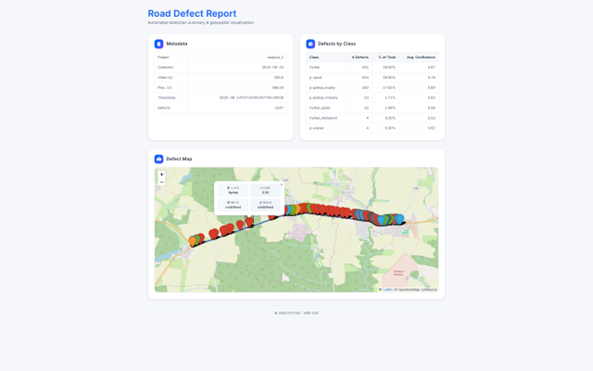The researchers first focused on data preparation and cleaning, the design of robust neural network architectures, and their testing in real-world conditions. The development and implementation of the models directly involved Dominik Vilímek, Boris Pustějovský, Robert Šamárek, and Ondřej Svoboda. The models were tested under various lighting conditions, with camera motion, and across a wide range of defect types. The results were validated according to AI-MATTERS standards, ensuring compliance with strict criteria for quality and industrial applicability.
“We have proven that our algorithms can reliably operate outside laboratory conditions. Thanks to validation within AI-MATTERS, we are confident that the results have practical value,” explains Radek Martinek, head of Signal Lab.
The first phase delivered detailed test reports documenting the accuracy and robustness of the algorithms, which serve as a basis for decisions about further deployment of the technology.
These results are now followed by a new project, which will focus on systematically comparing the performance of three selected neural network models, their computational demands, and the possibilities of optimization for different hardware platforms. “We will evaluate not only detection accuracy but also speed and throughput when deployed in the cloud. We need to determine whether the model runs efficiently on GPU servers, or if we can also make it work on less powerful hardware,” Martinek adds.
The next step is the parameterization of detected defects. This means that the algorithm will not only report the occurrence of a crack, but will also automatically measure its length, width, or area. Such information is essential for planning repairs and predictive infrastructure maintenance. At the same time, the team will focus on verifying cloud infrastructure and APIs to ensure that results can be easily integrated into industrial systems.
The Futtec project is funded under the Digital Europe Programme (DEP) and is part of the European AI-MATTERS network (AI Manufacturing Testing and Experimentation network For European industries). Its outcomes may contribute not only to more efficient road management and repairs but also to the broader use of AI in industry and logistics.
